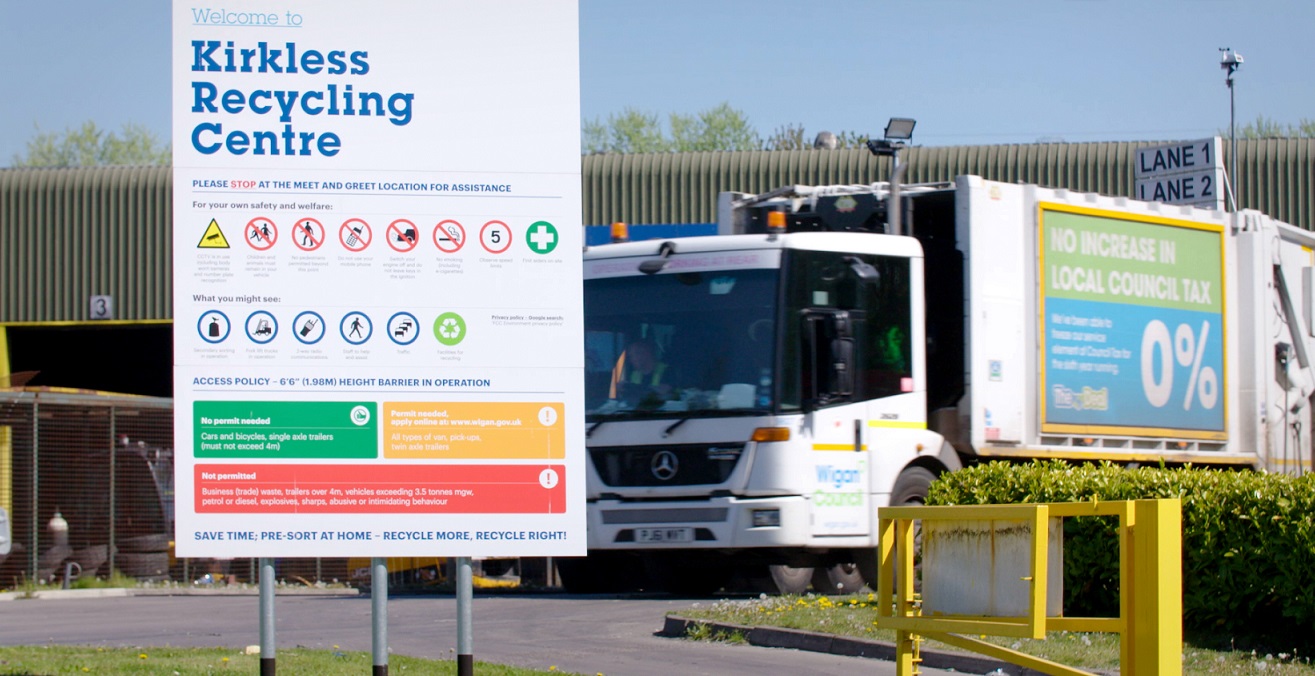OPINION: Children’s drawings of bin trucks, colourful ‘thank you’ messages over rainbows, small gifts of appreciation and even standing ovations.
These touching gestures of gratitude have been what our bin crews here in Wigan, and across the country, have encountered on their rounds over the past month or so.

An unforeseen consequence of the coronavirus has been a newfound appreciation of our waste collection services.
The outpouring of thanks has certainly given our staff a boost and is richly deserved.
There is no doubt that the pandemic has been a challenge for waste services – but it has been a challenge our outstanding staff, and those from many other councils, have risen to meet.
Here in Wigan Borough, in Greater Manchester, our teams are responsible for emptying over 200,000 domestic bins every week.
Challenges
From the introduction of lockdown, the service was faced with multiple challenges.
With the majority of residents working from home, the amount of waste and recycling produced increased by an extra 34% compared to last year.
Food and garden waste increased by a massive 88%, placing increasing pressures on our staff to be able to finish their rounds and collect all bins on time.
Alongside this, there was an increased pressure on staff resource. Wigan has 162 staff working in waste services.
This includes operational, support and management staff across both waste collection and waste management.

We had staff having to self-isolate or quarantine due to being classed as ‘vulnerable’ or their household and themselves showing symptoms.
The highest percentage we experienced saw 47% of our staff absent, with 40 staff alone absent due to reasons related to coronavirus.
Nervousness
There was also an understandable nervousness about continuing to work during the pandemic. Many of our staff have families of their own with vulnerable relatives and young children, so continuing to provide their service day in day out was extremely stressful and worrying.
Despite these challenges, the team effort and collective spirit meant that every resident continued to receive an uninterrupted and normal waste collection service, including full recycling of all waste streams, with every round completed on time meaning 52,354 bins were collected each working day.
The team was also supported by staff from other areas such as our Streetscene service to support on the collection rounds and staff with HGV licences were trained up to drive the wagons.
Simple things made a real difference, such as keeping staff updated on key internal and external messages such as social distancing guidelines etc, acting on staff feedback, promoting a sense of pride and togetherness, allowing teams to finish their shift once their round is complete. We also give staff access to a fleet of small vans to ensure social distancing was maintained, all vehicles were stocked with healthy supplies of hand sanitiser and disinfectant, it’s those small things that make a big difference!
“We will look to build on some of the positive changes in work practices that have been evident during the crisis.”
We also listened to the needs of our residents resulting in Wigan being the first local authority in the country to re-open our HWRC’s giving a much needed outlet for residents waste, and as a result we saw a dramatic reduction in fly tipping allowing us to deploy additional staff in to more critical service areas.
Normality
As our society will slowly gain a semblance of normality, I hope some things don’t return to normal.
We will look to build on some of the positive changes in work practices that have been evident during the crisis.
Meanwhile, waste teams have taken their place alongside social carer staff, shop workers and our much-loved NHS staff as frontline workers essential to the functioning of society, in crisis or not.
Let’s work to ensure the coming together of our communities in appreciation of a broader range of public sector workers is an enduring legacy and one we don’t waste.











Subscribe for free